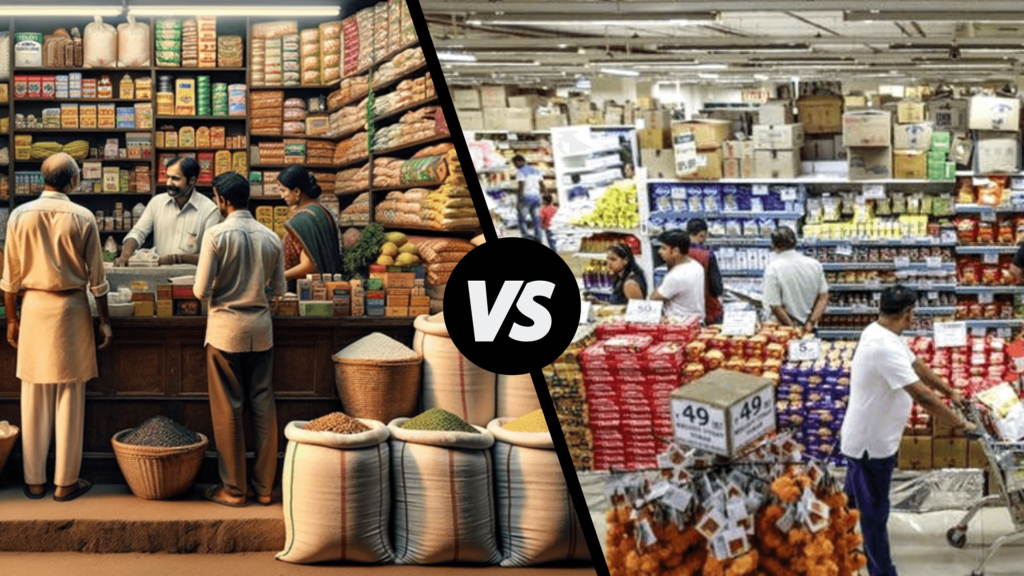
Kirana stores, also known as mom-and-pop stores, are a vital part of the Indian retail landscape. These small, independently-owned stores are an important source of employment and economic activity, particularly in rural and semi-urban areas. The Indian government has implemented a number of policies aimed at supporting and promoting the growth of these stores.
Some of them are:
1. The Pradhan Mantri Bhartiya Jan Aushadhi Pariyojana (PMBJP): It aims to make quality medicines available at affordable prices through a network of Jan Aushadhi stores. These stores are operated by individuals, including kirana store owners, and are supplied with medicines at prices that are significantly lower than those available in the open market. The government has also introduced a scheme to provide financial assistance to kirana store owners for the purchase of equipment and for the construction or renovation of their stores.
2. The Pradhan Mantri Fasal Bima Yojana (PMFBY): It provides insurance coverage for crop losses due to unforeseen events such as natural disasters. Kirana store owners often provide credit to farmers, and this insurance scheme helps to mitigate the risk of loan defaults due to crop losses.
The government has also introduced a number of initiatives to promote digital payments and financial inclusion among kirana store owners and their customers.
3.The Pradhan Mantri Jan Dhan Yojana: It provides low-cost bank accounts to individuals and families, and the BHIM (Bharat Interface for Money) app allows for easy digital transactions.
In addition, the Government of India has been promoting e-commerce platforms for kirana stores through various initiatives like “Kirana Now” and “Amazon Kirana” to help them reach out to more customers and increase their sales. This will not only help kirana stores to increase their revenue but also help customers to get more choices of products.
In conclusion, the Indian government has implemented a number of policies aimed at supporting and promoting the growth of kirana stores. These policies include initiatives to make affordable medicines available, financial assistance for the purchase of equipment and store renovation, crop insurance, and digital payments and financial inclusion. These policies are helping to strengthen and sustain the kirana store ecosystem, which plays a vital role in the country’s economy and society.





